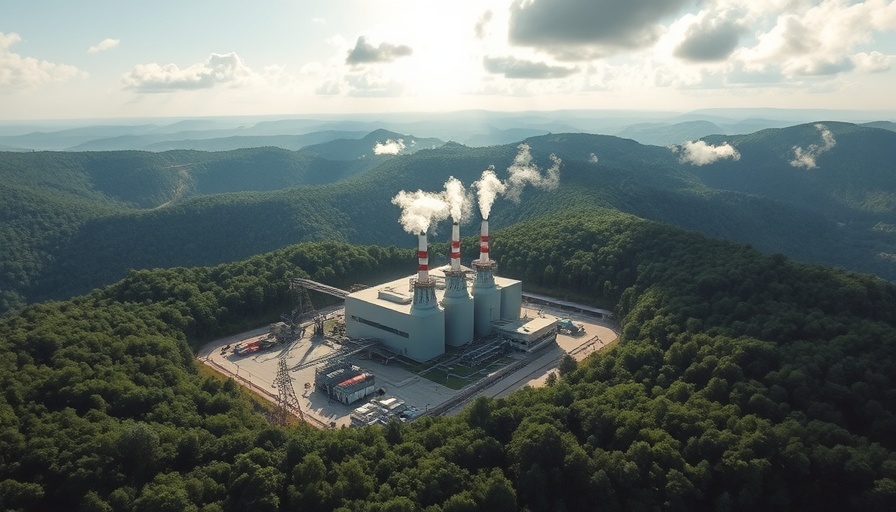
Understanding the Clean Energy Debate in Michigan
In April 2025, the ongoing discussion surrounding energy sources in Michigan's Upper Peninsula (UP) took a significant turn when a House committee moved forward with legislation deeming two natural gas plants as 'clean' energy sources. This decision is part of a broader effort to update Michigan’s clean energy law, which aims to phase out fossil fuels by 2040. However, the characterization of natural gas as a clean energy solution has sparked controversy among environmentalists and lawmakers alike.
Why Natural Gas is at the Center of the Energy Policy Debate
The proponents of the legislation argue that without the inclusion of natural gas plants, energy prices could soar if these facilities, which were built to replace coal, are forced to shut down prematurely. Estimates suggest that energy costs could climb as residents and industries struggle with the impact of sudden changes in energy sources. With many residents in the UP relying on these plants for electricity, the stakes are high.
Critics, on the other hand, assert that natural gas is still a fossil fuel and not sustainable in the long run. They emphasize that the main component, methane, is a significant greenhouse gas, contributing to climate change. This viewpoint aligns with a growing demand for genuinely renewable energy sources that minimize environmental impact.
The Broader Relevance of Clean Energy Goals
This debate over natural gas highlights the complexity of energy transitions while grappling with climate change. As Michigan sets ambitious energy goals, it becomes imperative to balance economic concerns with the urgency of reducing carbon emissions. The opposition argues that labeling natural gas as clean could undermine the state’s commitment to transitioning to truly renewable energy solutions.
A Historical Context to Energy Policy in Michigan
The energy landscape in Michigan has significantly evolved in recent years. Once heavily reliant on coal, the state has made moves toward more sustainable practices. The natural gas plants were a step away from coal, offering a transitional solution aimed at reducing emissions. Yet, with the new legislation, they have become a focal point in understanding what 'clean' means in today's context.
Future Predictions: The Energy Landscape in 2040
As policymakers look ahead to the 2040 target to largely eliminate fossil fuel use, the question remains: can natural gas be considered part of a transitional solution towards a total renewable future? Experts argue that if the shift towards clean energy is not handled transparently, there could be unintended consequences, such as prolonged reliance on natural gas or even setbacks in renewable energy adoption.
Counterarguments: Balancing Economies and Environment
Supporters of the bills emphasize the need for energy security given the region’s economic dependencies on stable energy prices. Businesses and residential users alike fear that a quick shift away from natural gas could lead to significant economic strain. This dilemma pits economic stability against environmental priorities, prompting continuous discussions about the best path forward.
Take Action: Your Voice Matters
As residents of Michigan navigate this pivotal moment in energy policy, it is essential for constituents to remain informed and engaged. Following the developments in legislation and advocating for your energy needs can shape the future energy landscape. Speak with local representatives, attend community forums, and stay updated on the impacts of these bills. Your input is crucial in ensuring a balanced approach that considers both economic realities and environmental health.
 Add Row
Add Row  Add
Add 




 Add Row
Add Row  Add
Add 

Write A Comment